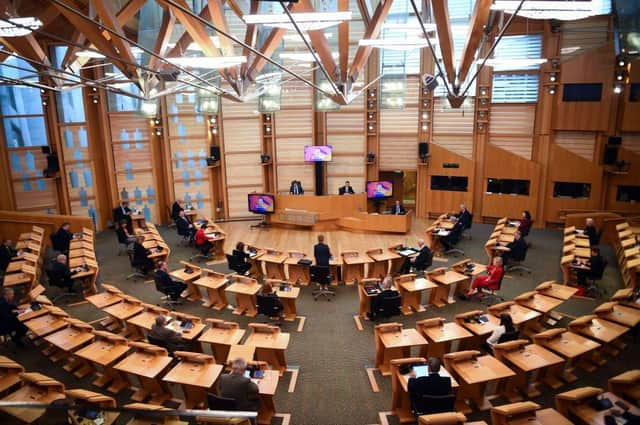Alex Salmond legal advice: Scottish Parliament must be given power to hold government in contempt – Daniel Johnson MSP


It is a strength that parliamentary business is set by a cross-party body, not simply the government. Individual members have a genuine chance of bringing forward legislation in contrast with the arcane private members bills process in the Commons. And as someone who is allergic to job titles, I’m glad we don’t have to remember who is a “Right Honorable” or “Honorable” friend.
But there is something that is not quite working, as brutally exposed by the government's refusal to hand over the legal advice regarding the judicial review of the Alex Salmond case. Legal advice that parliament has now voted twice to be handed over, to no effect.
Advertisement
Hide AdAdvertisement
Hide AdThe debacle has posed a serious question: “Who’s in charge, parliament or the government?” Intransigence and the lack of consequences have provided a clear answer: The government is. In a parliamentary democracy, that’s a disturbing conclusion.
The arguments are well-rehearsed elsewhere. But let’s be clear, there is precedent for governments releasing such advice. More importantly, the ministerial code, which has been Stugeon’s key defence, explicitly provides for this where it is in the public interest.
The public interest is precisely what is at stake in terms of why the advice must be released, and in highlighting serious shortcomings of the devolved parliament.
The cost, wisdom, justification and motives of continuing legal action has been called into question by these events. The government is supposed to act on behalf of us all. Yet it appears that its resources and energies have been directed, not in pursuit of the public good, but for the individual political agenda of the SNP. That is a serious allegation and one which can only be resolved with the publication of the legal advice.
Governments are made up of people with fallibilities, foibles and faults. If they weren’t, you wouldn’t need parliament. Parliamentary scrutiny is about testing the motives, judgements and outcomes of government. But ultimately that only works if parliament has the final word.
In Westminster, the principle and tradition of parliamentary sovereignty guarantees this. But in its defiance of parliamentary votes, SNP ministers have exposed that in the effort to create a modern institution, we may have failed to establish this one critical tradition: that government must obey parliament.
That is why, if I am re-elected, I will bring forward a bill putting government compliance with parliament on a statutory footing. The core principle will be to require ministers to demonstrate compliance with votes of parliament and create mechanisms for parliament to find the government in contempt if it does not do so to its satisfaction. Parliament is there to represent the people. A Parliamentary Primacy Bill would codify that fundamental principle.
Democracy is imperfect. Governments will not always act in perfect alignment with public mood and will. But our best way of ensuring this is to have a government that is accountable to a parliament elected by the people. But this is broken in Scotland. Government derives its authority and legitimacy from parliament, it therefore cannot be allowed to ignore it.
Daniel Johnson is Labour MSP for Edinburgh Southern
A message from the Editor:
Thank you for reading this article. We're more reliant on your support than ever as the shift in consumer habits brought about by coronavirus impacts our advertisers.
If you haven't already, please consider supporting our trusted, fact-checked journalism by taking out a digital subscription.
Comments
Want to join the conversation? Please or to comment on this article.